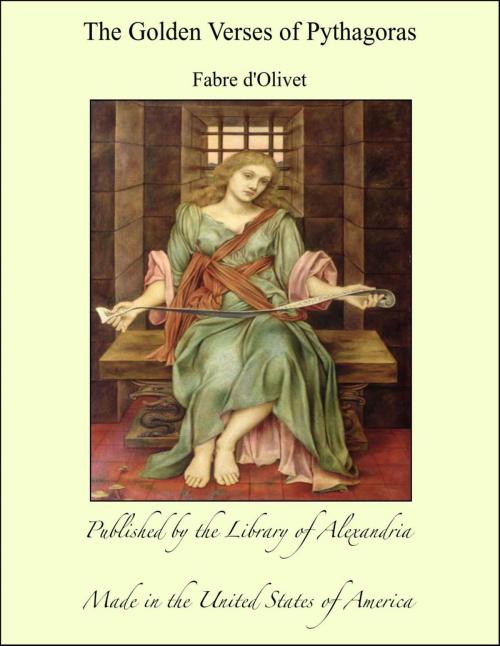The Golden Verses of Pythagoras
Nonfiction, Religion & Spirituality, New Age, History, Fiction & Literature| Author: | Fabre d'Olivet | ISBN: | 9781465577276 |
| Publisher: | Library of Alexandria | Publication: | March 8, 2015 |
| Imprint: | Language: | English |
| Author: | Fabre d'Olivet |
| ISBN: | 9781465577276 |
| Publisher: | Library of Alexandria |
| Publication: | March 8, 2015 |
| Imprint: | |
| Language: | English |
IN this twentieth century, the sacred books of the ancients are undoubtedly better understood than they were even by their contemporaries, for their authors, by the greatness of their genius, are as much nearer to us, as they were distant from them. At the close of the eighteenth century, the light which came from the illimitable mind of Fabre dOlivet shone with solitary splendour and was destined to be seen by only a few devoted followers. But history shows that a great inspirer always appears at the beginning of every great epoch, and however small the number of his disciples, these disciples with their pupils form the magnetic chain which, according to Plato, carries his thought out into the world.
IN this twentieth century, the sacred books of the ancients are undoubtedly better understood than they were even by their contemporaries, for their authors, by the greatness of their genius, are as much nearer to us, as they were distant from them. At the close of the eighteenth century, the light which came from the illimitable mind of Fabre dOlivet shone with solitary splendour and was destined to be seen by only a few devoted followers. But history shows that a great inspirer always appears at the beginning of every great epoch, and however small the number of his disciples, these disciples with their pupils form the magnetic chain which, according to Plato, carries his thought out into the world.















